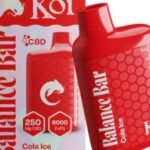For parents of infants in the Neonatal Intensive Care Unit (NICU), the priority is the health and development of their newborn. Trusting in the medical system’s guidance, many are unaware of the potential dangers associated with certain types of baby formulas given in these high-care settings. Recent studies and lawsuits have highlighted the risk of necrotizing enterocolitis (NEC) associated with the consumption of cow’s milk-based formulas in premature infants.
The Hidden Dangers of Baby Formula in the NICU: Understanding NEC

Necrotizing enterocolitis (NEC) is a devastating intestinal disease primarily affecting premature infants. The disease causes inflammation and can progress to the death of intestinal tissue. Infants with NEC often endure a long, difficult battle that may include surgeries and extended hospital stays. Law firms, such as those providing support for the NEC lawsuit, play a pivotal role. They provide resources, legal counsel, and the support necessary to navigate these difficult waters.
While the exact cause of NEC is not fully understood, it is believed to be multifactorial, involving a combination of prematurity, bacterial presence, and an intestinal system not fully developed to handle feeding. This condition not only impacts the health of the baby significantly but also causes emotional and financial strain on families.
Recent research has pointed to the possible connection between the development of NEC and the consumption of formula, particularly those derived from cow’s milk. These findings suggest that these formulas may not be as benign as once thought when fed to particularly vulnerable infants in the NICU setting.
The Link Between Certain Baby Formulas and NEC Incidence
Medical studies indicate an increased risk of NEC associated with the intake of cow’s milk-based formulas in premature infants. The theory is that these formulas may be harder for premature guts to digest and could contribute to the development of NEC. This has led to considerable concern among parents and healthcare professionals.
Compared to human milk, which contains antibodies and growth factors beneficial to the gut, cow’s milk lacks these protective effects. High-quality human milk fortifiers from donor milk are suggested as safer alternatives, yet many NICUs still use cow’s milk-based products due to various factors, including cost and availability.
Parents often rely on the expertise of healthcare providers for feeding options in the NICU, and the knowledge gap regarding the risks of certain formulas can lead to uninformed decisions. The push for greater transparency and evidence-based feeding protocols in the NICU is a response to these concerns.
Legal Recourse for Families: Unpacking the NEC Lawsuit Process
Families impacted by NEC after their infant was fed a cow’s milk-based formula in the NICU may consider legal action. This process begins with understanding the rights of the patient and the liabilities of manufacturers. The goal of a lawsuit is often twofold: to seek compensation for the suffering caused and to drive changes in practices and awareness.
A lawsuit often comes after the pain of personal tragedy, which can be a daunting path for families to walk. Legal professionals experienced in product liability and medical negligence are critical allies. These experts can guide through the complexities of medical-legal cases like the NEC lawsuit.
Determining the potential for a case typically involves a careful review of medical records, expert testimonies, and the specific circumstances surrounding the infant’s feeding regimen. Solidifying the connection between the formula used and the development of NEC is often a focal point of these cases.
Protecting Your Infant: Alternative Feeding Options in the NICU

With the risks associated with cow’s milk-based formulas becoming more apparent, health-conscious parents and healthcare providers must consider safer alternatives. Breast milk remains the gold standard for infant nutrition, particularly for preterm and at-risk neonates.
If a mother’s milk is not available, donor human milk from certified milk banks provides a close alternative. These banks screen donors and pasteurize the milk to ensure safety for NICU patients. Fortifiers made from human milk can also be added to enhance the nutritive value without the risks associated with cow’s milk-based products.
Hospitals and NICUs may develop protocols advocating for human milk, emphasising the importance of a mother’s milk whenever possible. Parents should feel empowered to have discussions with the medical team about feeding options and express their preferences or concerns.
The urgency of addressing the NEC risks associated with certain baby formulas is paramount for the safety of our most vulnerable population. It’s a matter of informed choices in the NICU and a collective push for industry-wide changes. Families affected by this condition have options for recourse, and by taking steps towards awareness and legal action, they help pave the way for safer feeding practices in NICUs globally.














